UK court allows WikiLeaks founder Julian Assange to appeal decision to extradite him to US
WikiLeaks founder Julian Assange has won the right to challenge a UK court ruling allowing him to be extradited to the United States to face espionage charges.
The High Court in London on Monday allowed Assange to ask the UK Supreme Court to block his extradition to the United States. However, the court did not grant Assange permission for a direct appeal. That means it is now up to the Supreme Court to decide whether or not to hear his challenge.
It normally takes the UK Supreme Court about eight sitting weeks to accept an appeal once an application is submitted to the court.
The decision comes more than a month after two senior judges in the High Court overturned a January 2021 ruling by a lower court that opened the door for Assange's extradition to the United States on the basis of assurances that he would not be mistreated.
Assange is wanted in the US over the publication of thousands of classified documents more than a decade ago. The Justice Department has charged the embattled whistleblower under the Espionage Act in connection with obtaining and publishing secret government documents.
The case has raised novel First Amendment issues and alarmed advocates of media freedom. Assange’s supporters and human rights advocates also say the charges against him are politically motivated.
The US government has been attempting to extradite Assange under a treaty with the United Kingdom for publishing damning documents related to US war crimes in Iraq, Afghanistan, and human rights violations elsewhere. He can be jailed for decades if put on trial in the US.
Assange’s fiancee, Stella Moris celebrated the Monday ruling as a victory. “Make no mistake, we won today in court,” she said outside the courthouse, noting that he remains in custody at Belmarsh Prison in London.
“Julian has to be freed,” Morris said. “And we hope that this will soon end. We are far from achieving justice in this case.”
“We will fight this until Julian is free,” she added.
Just over a year ago, a district court judge in London rejected a US extradition request on the grounds that Assange would likely be driven to suicide if detained in a maximum-security prison in the United States.
Later, American authorities gave assurances that he would not be subjected to the severe treatment his attorneys said would put his physical and mental health at risk.
The High Court last month overturned that decision, saying that US assurances on Assange’s treatment were enough for the extradition case to move forward. Those assurances were the focus of Monday’s ruling by the High Court.
In announcing the ruling, Lord Chief Justice Ian Burnett said that the decision was allowed on a very narrow point; that assurances from the United States came so late in the process.
The High Court refused to send the case straight to the Supreme Court, but allowed for Assange’s legal team to appeal to the court on the basis of that delay.
The trial is playing out in British courts after Assange spent years detained in the Ecuadorean Embassy in London on now-debunked sexual assault charges.
He was ejected from the embassy in 2019, and on the same day, the administration of then-President Donald Trump unleashed an indictment against him on hacking charges. Weeks later, he was charged with espionage and has been holed up in Belmarsh prison ever since.
WHO: Over 1,000 Palestinians died awaiting medical evacuation from Gaza
US university fires Iranian professor over support for Iran, Palestine
VIDEO | Anti-Trump activists deliver ‘people’s indictment’ at White House
EU’s tampering with Russian assets is ‘theft’ no matter how it’s framed: Moscow
Israeli army kills Palestinian teen during northern West Bank raid
VIDEO | Two killed, nine wounded in mass shooting at Brown University
VIDEO | Germany considers Tunisia for migrant 'return center' plans
VIDEO | UK protesters show solidarity with Palestinians at Christmas


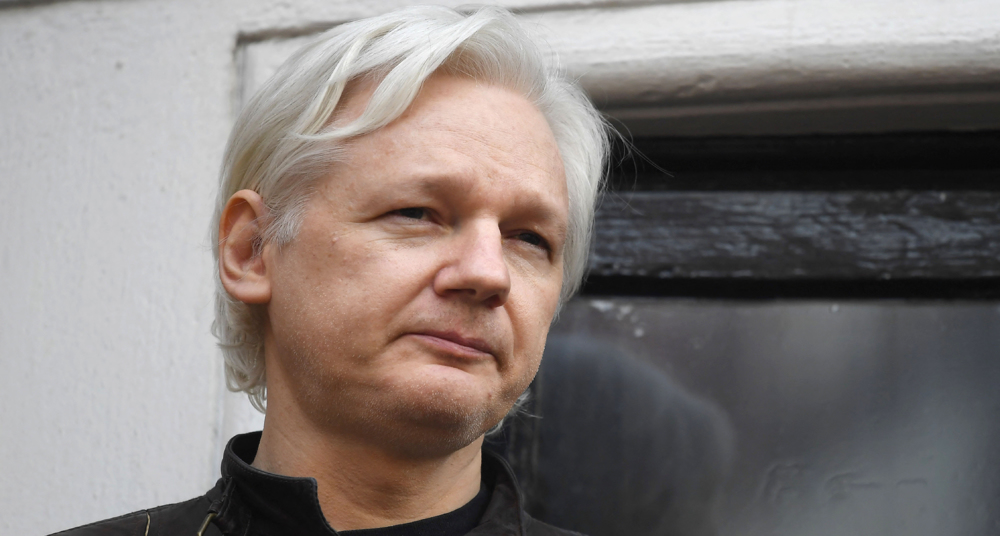
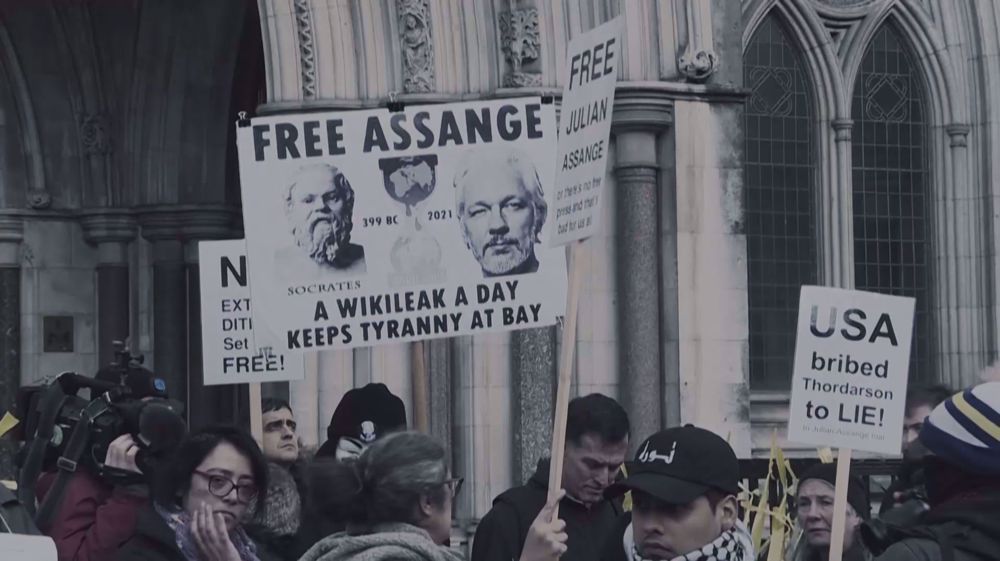
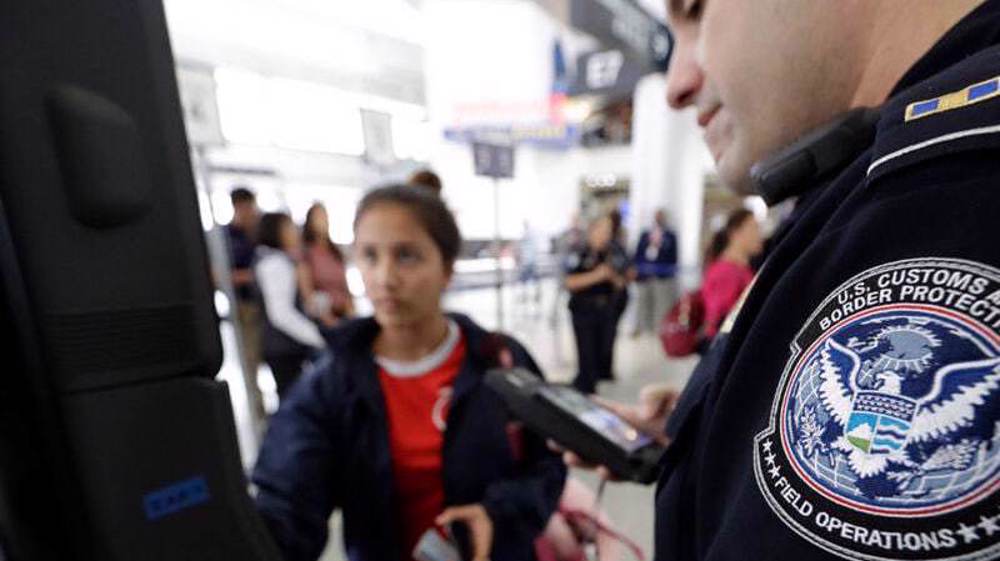





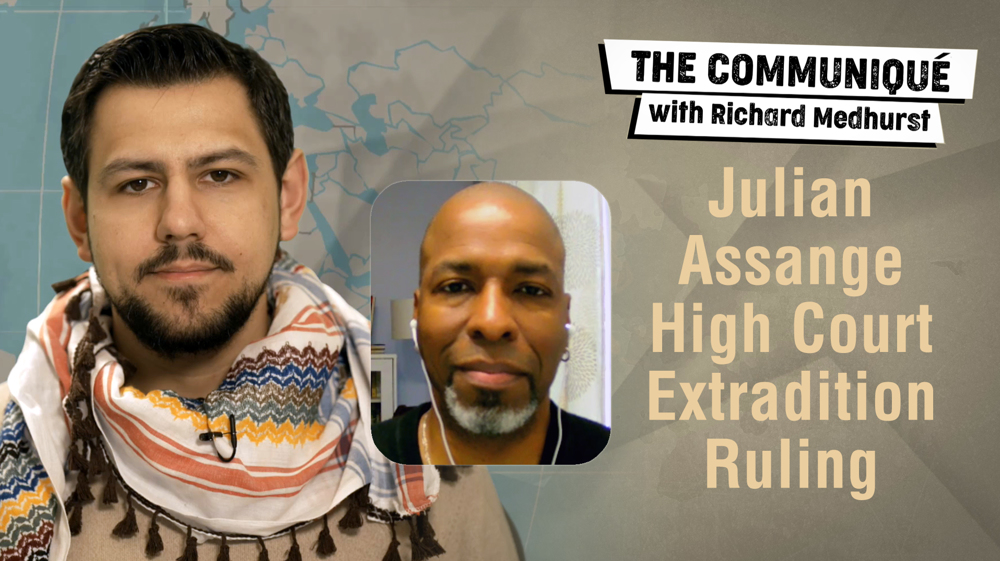
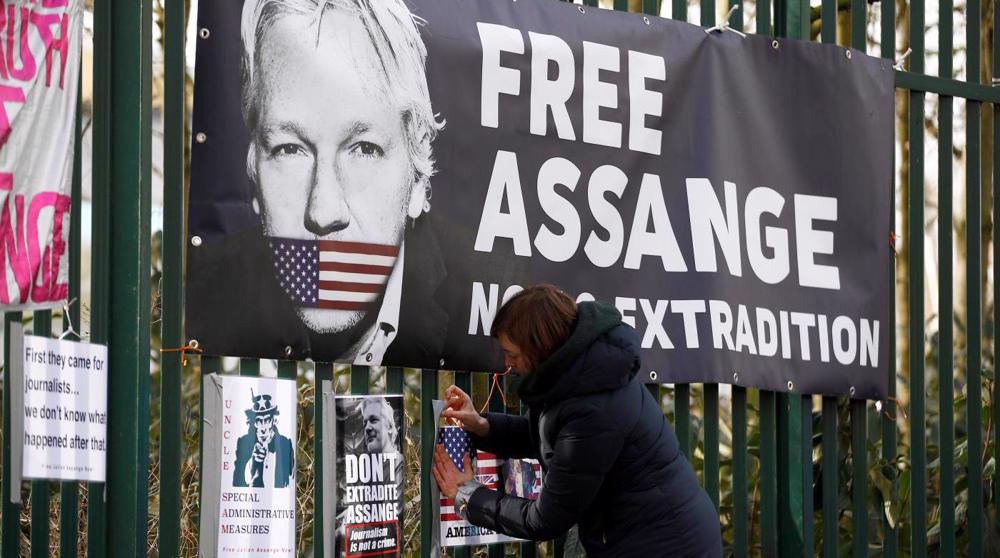

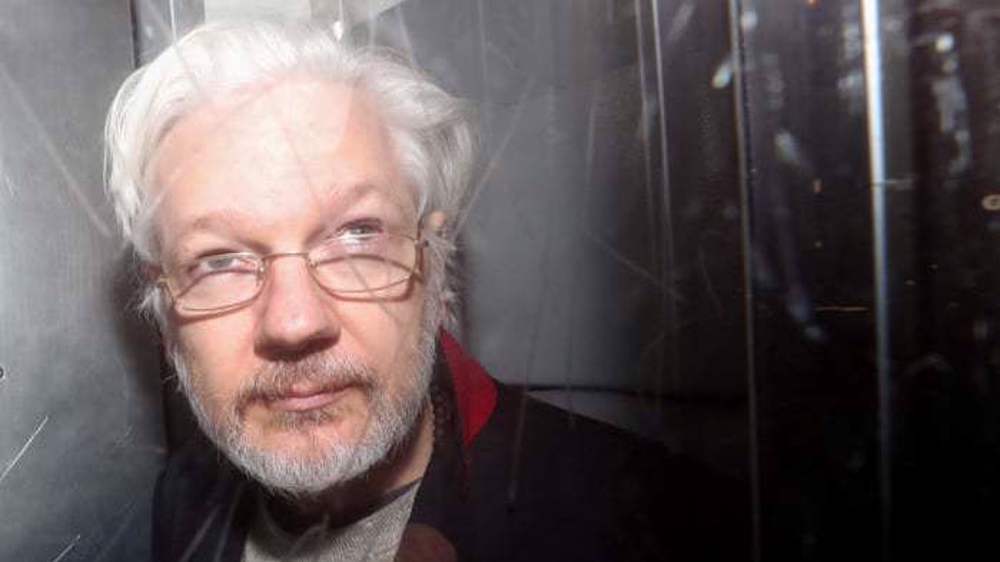
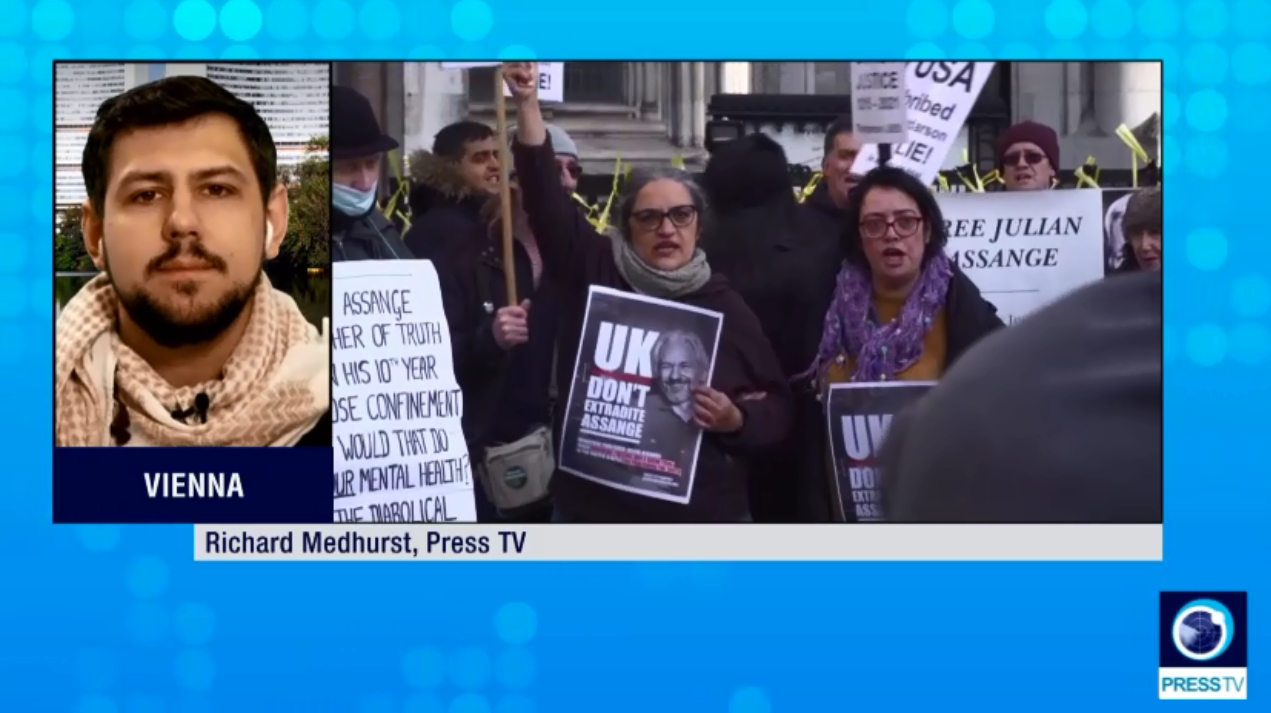
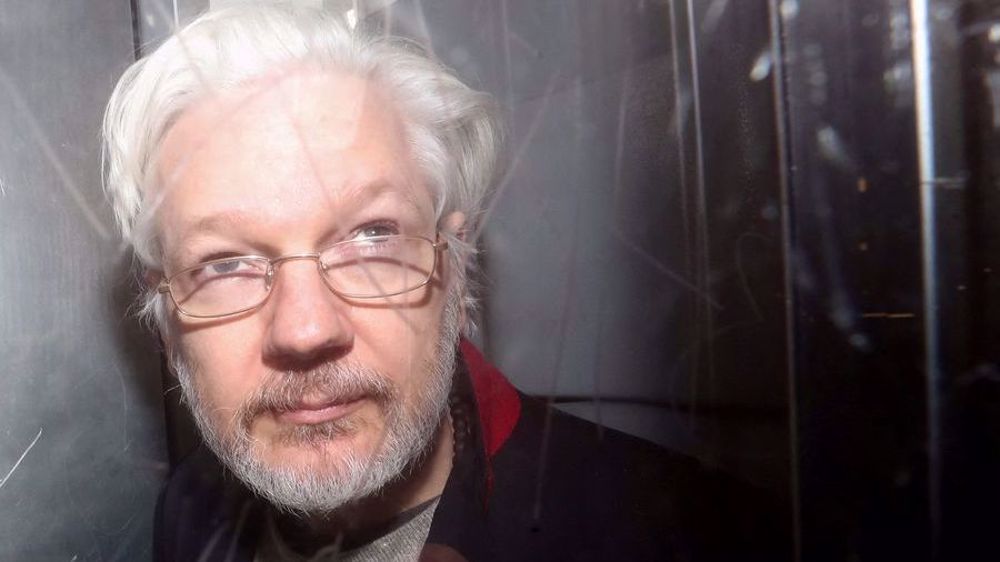

 This makes it easy to access the Press TV website
This makes it easy to access the Press TV website